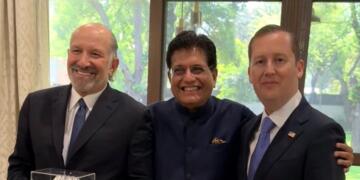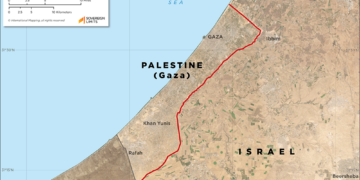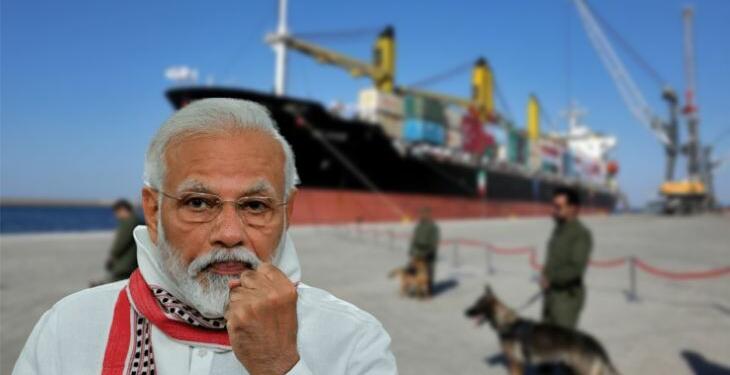After the Taliban seized power in Afghanistan by breaching the capital city of Kabul in August, earlier this year, clouds of uncertainty loomed over the future of India developed Chabahar Port in Iran. However, according to recent reports, it appears that the Taliban wants cordial relations with India and, thus normal operations have resumed on the strategically important port.
An official was quoted as saying by TOI, “Despite instability in Afghanistan, traffic at Chabahar is increasing,”. While operations were affected by the Taliban takeover, work resumed on September 2 and the Shahid Behesti Terminal since then is said to have handled cargo from Russia, Qatar, Romania and Australia. The cargo has included food products like barley, wheat and corn.
Since September this year, Russia has sent 8 shipments to Chabahar comprising, among other things, 5.3 lakh tons of wheat. In the past 2 months, the port is also said to have facilitated exports to UAE, Kuwait and, for the first time, to Bangladesh. The Indian government sees it is as a significant achievement.
Port activities resumed two days after New Delhi’s talk with the Taliban
It is pertinent to note that on August 31, two days before work resumed on the port, New Delhi had held the first formal talks with the Taliban in Qatar. India’s ambassador to Qatar, Deepak Mittal, met with the head of the Taliban’s political office, Sher Mohammad Abbas Stanikzai.
According to a presser by External Affairs Ministry, the two stakeholders discussed the safety, security and early return of Indian nationals who are stranded in Afghanistan as well as travel prospects for Afghan minorities who want to visit India.
However, one can presume that Chabahar port and the resumption of economic activities on it must have formed a major part of the discussion.
Chabahar Port — a strategic port asset for India
Reported extensively by TFI, India finds the Chabahar port of high importance as it is one of the first major investments by India in another country for developing something of Indian strategic importance.
And two, it provides India with a much-needed node to connect with Afghanistan and the whole of Central Asia bypassing Pakistan which has been in bed with China.
India is developing the Chabahar port and the Chabahar-Zahedan Railway Project connecting the port with Afghanistan, thus providing a route for connectivity with Kabul bypassing Pakistan.
It was agreed on as part of a Trilateral agreement among India, Iran and Afghanistan to develop International Transport and Transit Corridor. The port can also be of utility for transporting natural gas from Central Asia without getting bothered by Islamabad.
Read More: Chabahar Port: India’s gateway to Central Asia with Russia’s full backing is going to save 20% costs
Pakistan-China feel betrayed as Gwadar Port is ignored
Moreover, Taliban batting for good, diplomatic ties with India through the Chabahar port doesn’t augur well for Pakistan. Gwadar Port, a Chinese-funded deep seaport that is located 172 km east of Chabahar is often dubbed by Islamabad as an alternative to the India-developed port.
However, with the trade resuming and Russia and other countries actively using Chabahar, it wouldn’t be a hyperbole to suggest that China-Pakistan feel dumped, even after backing Taliban all the way through in its ambitions.
It must be remembered that the Chabahar port plays a crucial foreign policy role for India, and achieves a power symmetry against an ever-belligerent China’s “string of pearls” strategy of encircling India from all sides.
Despite America’s roadblocks, India has continued developing the port
Yet, being situated in Iran, the Chabahar port was no exception to facing the heat of President Trump’s “maximum pressure policy” against Tehran, which caused tremendous economic ravaging of the Shi’ite country.
Further, the Chabahar port, which could be an immediate geostrategic asset for India, got its development almost decelerated due to many terms and conditions laid out by the U.S.A while granting exemption to India to invest in the port.
New Delhi has a robust Indo-Pacific strategy with democratic countries like the US, Japan, and Australia joining hands with India to contain China in this region. However, it needs a fully functional Chabahar to counter the paper dragon in Central Asia.
It might not be the ideal arrangement to have to deal with the Taliban but this is the current reality and India has to keep its interests at the forefront, before thinking about any other country.

























